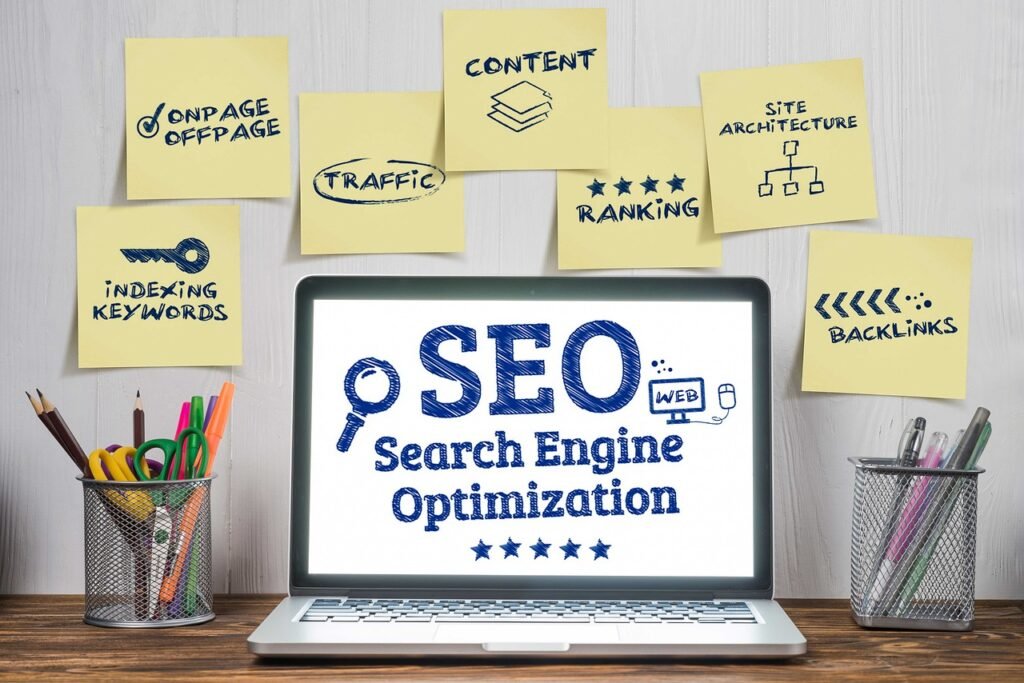Introduction
Hey there! Have you ever wondered how some websites always seem to pop up first when you for something on Google or any other search engine? Well, Search Engine Optimization, comes into play. In this post, we’ll explore the basics and why it’s so crucial for anyone looking to make their mark online. So, grab a comfy seat, and let’s dive in!
Understanding SEO
Search Engine Optimization, is the process of improving a website to increase its visibility when people search for products or services. The better visibility your pages have in search results, the more likely you are to garner attention and attract prospective and existing customers to your business.
Why SEO is Important
A good SEO strategy can be the difference a virtually invisible site and one that’s at the top of search results. To put it simply, better visibility often means more traffic, and more traffic can lead to increased sales, subscriptions, or whatever your website’s goal may be.
Benefits
- Increases Organic Traffic: By optimizing your site, you can get it to rank higher in search results, bringing in more visitors without spending money on ads.
- Builds Credibility: Appearing at the top of search results can make your business look more credible to potential customers.
- Better User Experience: It isn’t just about search engines; it’s about making your site better for your users too.
- Cost-Effective: Compared to paying for ads, the ROI from SEO can be much higher over the long run.

Basic Components
To effectively optimize your site for search engines, you’ll need to understand some basic components . Let’s break them down:
On-Page SEO
On-Page SEO refers to the elements on your website that you control directly. This includes:
- Keyword Research: Finding the terms your audience is searching for.
- Content Quality: Creating valuable and relevant content that satisfies user intent.
- Meta Tags: Optimizing your titles and descriptions to include target keywords.
- URL Structure: Ensuring your URLs are clean and include relevant keywords.
Off-Page SEO
Off-Page SEO involves all the activities conducted away from your website to raise its ranking. Key activities include:
- Backlinks: Getting other reputable websites to link to your content.
- Social Signals: Shares and likes on social media as indirect ranking factors.
- Influencer Outreach: Engaging with influencers who can help promote your site.
Technical SEO
Technical SEO ensures that your site is structured in a way that search engines can easily crawl and index it. Key elements include:
- Site Speed: Websites that load quickly tend to rank higher.
- Mobile-Friendliness: Your site should be responsive and function well on mobile devices.
- Sitemaps: An XML sitemap helps search engines understand your site’s structure.
Common Mistakes to Avoid
It’s easy to make mistakes when you’re new . Here are some common pitfalls:
- Ignoring Mobile Optimization: With so many users browsing on their phones, a mobile-friendly site is crucial.
- Keyword Stuffing: Overusing keywords can lead to penalties from search engines.
- Neglecting Content Updates: Fresh content is favored by search engines, so regular updates are essential.
- Unnatural Backlinks: Quality over quantity when it comes to backlinks.

Tools to Use
Several tools can help you manage and improve your efforts. Here are some popular options:
Google Analytics
Helps you understand your audience’s behavior, which can inform your strategy.
Google Search Console
Provides insights on how Google views your site and helps you identify issues.
SEMrush
Offers in-depth analysis on keywords, backlinks, and competitors.
My Personal Experience with SEO
When I first started dabbling in SEO, it felt like stepping into a labyrinth. I made a ton of mistakes—like focusing too much on keyword density and ignoring user experience. But over time, I realized that SEO is less about tricking search engines and more about understanding what your audience wants.
“Remember, SEO is a marathon, not a sprint.”
It’s about small, consistent improvements that add up over time.
Final Thoughts
SEO might seem complex, but it’s incredibly rewarding. Stick to the basics, avoid common mistakes, and use the right tools. You’ll not only improve your site’s visibility but also offer a better experience to your users.
Looking for more tips on SEO? Don’t hesitate to delve deeper into each of these sections!
“Optimizing for search engines ultimately means optimizing for your users.”
Happy optimizing!

Pingback: The Ultimate Affiliate Marketing Blueprint: From Zero Hero in 6 Months - brandboost